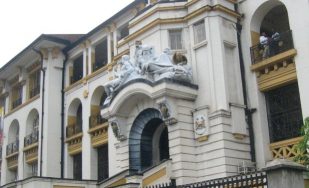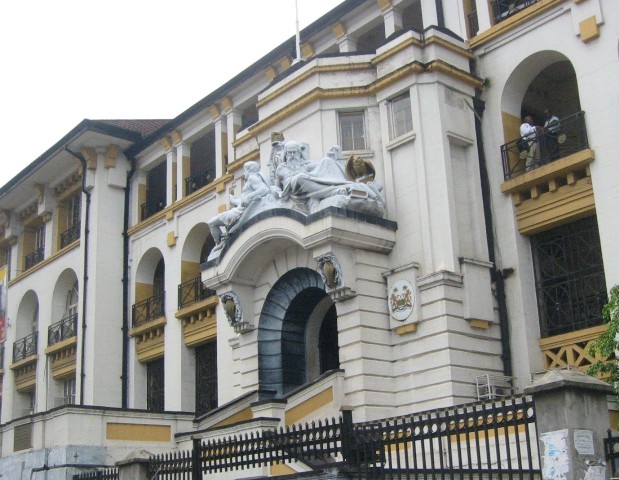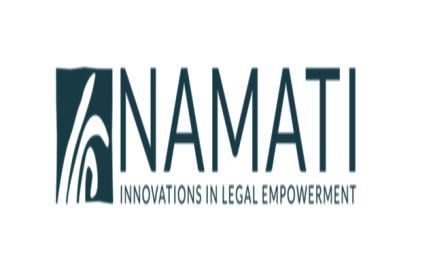Bail in Sierra Leone’s Courts: Through the lens of the GAVI trials
Introduction
The latest high profile corruption scandal which dominated the media for weeks is now playing out at the Freetown High Court. A total of 29 officials, the vast majority from the Ministry of Health have been indicted by the country’s anti-graft body for misappropriating hundreds of thousands of aid dollar. These funds were provided by the GAVI Alliance, a global health partnership working to increase access to immunisation in poor countries. All accused persons have made initial appearances at the high court and full trial is now underway for some.
Of note at the initial appearance was the manner in which the court dealt with the issue of bail for some of the accused persons. One of them, a principal health economist, was granted bail on condition that he pays Le 50,000,000 (US$ 11,600) cash into court, surrender his passport, deposit land title deeds and secure two sureties to sign a bond for Le 500,000,000 (US $111,000). Two other accused persons were ordered to pay smaller amounts into court as part of their bail conditions. All three had appeared before the same judge at different times on similar charges. The rest of the 29 were put on bail without the cash payment condition. Some of the 29 had appeared before another high court judge who did not impose a cash payment condition.
The Court’s Rationale
The basis on which the court decided to impose the fifty million leones cash payment remains unclear. Court records do not show that the prosecution raised concerns about flight risks in relation to the accused persons warranting the financial imposition. Assuming there were concerns that the accused might flee, one may argue that the surrender of passports and deposit of land title deeds were sufficient safeguards. This is perhaps the first time that a court in Sierra Leone has ordered accused persons in a criminal case to pay bail. No reasoning was proffered by the court. Maybe it was meant to convey a no-nonsense message that the judiciary is tough on corruption- a sort of peace offering to the anti-corruption commission which recently criticised the judiciary’s handling of corruption cases. Or it could just be a case of judicial overzealousness. What is certain though is that the message that ‘bail is free’ has been clearly altered. Was the court legally and procedurally correct in ordering accused persons to pay bail?
Discretion Mantra
Magistrates and judges never cease to remind litigants and lawyers that granting bail is a matter of judicial discretion- their sole discretion, exercised as they deem fit. They hastily point to the “if it/he thinks fit” language in section 79 of the Criminal Procedure Act 1965 (CPA) as the basis for their “unfettered discretion.” Suffice it to say that their scattered, capricious interpretation of “discretion” has contributed in no small way to the overcrowded state of the country’s prisons and detention facilities. In imposing the money condition, in the GAVI trials, even though the judge did not expressly refer to the CPA it is generally assumed that he made the orders on the basis of the discretionary power conferred by section 79. He may also have mentally relied on the Bail Policy of 2009. Does section 79 of the CPA confer discretion to impose payment of cash condition for bail? Assuming he did rely on it, is the Bail Policy an appropriate legal instrument?
The “Infamous” Section 79
In 2004, under pupillage and during my first outing in court I witnessed a judicial disaster that almost put me off practicing law. A magistrate before whom a case of abusive language and insulting conduct was laid exercised his discretion in a most arbitrary but sadly common manner. For reasons he did not disclose, other than stating that section 79 conferred on him discretion, he refused to grant bail to four unrepresented accused persons- a mother, father and their two teenaged sons. Worse still, the case was adjourned for 12 days. A senior colleague later explained to me that on the issue of bail, the magistrate called the shot and there was little a lawyer could do. I was not prepared to ply my trade under such circumstances. The complainant never showed up in court after that initial hearing. The matter was eventually dismissed for lack of prosecution. Nine years on, the actors have changed but the pattern continues.
Section 79 does provide for the exercise of some discretion regarding whether to grant bail or not and on what terms. It does not, however, confer on judicial officers a carte blanche. It provides that only judges can admit to bail for offences of treason or murder. Any court apart from local courts may, if it thinks fit, admit to bail for felonies other than murder or treason. For all other offences, like abusive language for instance, it mandates the court to admit to bail, “unless it sees good reason to the contrary.” On the conditions for bail, the section stipulates that “an accused who is to be admitted to bail shall procure such surety or sureties….as in the opinion of the court will be sufficient to ensure his appearance as and when required….” Several things are immediately clear from section 79. First, there is a presumption of entitlement to bail for misdemeanours and very little discretion for the court. Second, for very serious offences the court or a judge has much more discretion to determine whether bail may be granted. Third, the primary consideration in a bail inquiry is the need to ensure the appearance of the accused in court to answer charges. Lastly, to be admitted to bail an accused need only secure sureties and or give his personal undertaking. Neither sureties nor accused persons are required by the CPA to immediately make cash payments into court for the purpose of securing bail. Hence the notion- bail is free. Payment of money by the surety only arises when the accused “jumps bail” i.e. fails to appear in court to answer the charge. In this scenario, the amount of the bail bond will have to be paid into court. Clearly, the CPA does not allow for the imposition of cash payment conditions to secure bail. The discretion permitted the court is with respect to the execution of bonds by sureties and accused persons.
The Bail Policy of 2009
Cobbled together in 2009 by a committee consisting of lawyers, magistrates and judges, the Bail Policy was meant to facilitate the effective and efficient management of bail. The policy aimed to provide clarity on bail matters in particular, the application of section 79 of the CPA. It observed that “there is widespread disregard by Magistrates including Justices of the Peace… of the provisions of section 79….who pay scant attention to consistency of procedure… in bail matters.” However, apart from restating portions of section 79, the policy does not seem to add much by way of content. Further, its status is unclear as it is neither a practice direction from the Chief Justice nor rules of procedure from the Rules of Court Committee. Unsurprisingly, it is not widely quoted by practitioners and has in some cases been severely lampooned. Of some worry though is the fact that the policy purports to adopt the deposit of “cash security…where serious offences are involved, e.g., economic crime.” The committee drew inspiration from section 3 of the English Bail Act 1976 which expressly allows for the imposition of a security deposit as a bail condition. It is unclear why the committee chose to import a new legal provision from another jurisdiction via the Bail Policy. The proper route should have been an amendment of the CPA by Parliament to incorporate that provision. The cash security provision in the Bail Policy is therefore legally questionable. Its inclusion by the committee may amount to a violation of the legislative supremacy of Parliament.
Discretion should be guided by law
Evidently, in situations where judicial discretion is allowed it must be exercised in accordance with law and not capriciously. Lord Mansfield CJ in R v Wilkes 1770 said that “discretion when applied to a court of justice means sound discretion guided by law. It must be governed by rule, not by humour; it must not be arbitrary, vague and fanciful; but legal and regular.” This principle was echoed in Osborn v Bank of the United States 1824. Chief Justice John Marshall said that “courts are the mere instruments of the law….When they are said to exercise a discretion, it is a mere legal discretion, a discretion to be exercised in discerning the course prescribed by law. Judicial power is never exercised for the purpose of giving effect to the will of the judge, always for the purpose of giving effect to the will of the legislature or in other words to the will of the law.” In S v Omrie Golley and Others 2007 the Sierra Leone High Court opined that “judicial discretion…should be exercised responsibly and judiciously…in accordance with due process of law.” Where the law does not allow for the exercise of discretion, judges or magistrates should not arrogate that right to themselves as they would be undermining the rule of law. Section 79 of the CPA does not allow for the imposition of an ‘immediate payment condition’ to secure bail. The act requires only sureties and recognisances. By imposing an immediate payment condition on the accused persons to secure bail, the court in the GAVI trials, was arrogating to itself discretionary powers which the law did not confer on it.
Conclusion
The decision to impose a cash payment condition for bail in the GAVI trials has been criticised widely by practitioners. Some view it as an erosion of fair hearing rights, others say the court was simply playing parliament. Judicial watchers are wary of the implications of such a decision for lower courts. The doctrine of stare decisis or binding precedent means that, unless the decision is overturned by a higher court, it could be applied by lower courts with enormous ramifications.
However, a golden opportunity for far-reaching reforms across the criminal justice landscape has now emerged. The CPA is nearly 50 years old. Like many of the laws of Sierra Leone, it is in serious need of an overhaul. Work on a new draft started sometime in 2009. The draft is only now being finalised. Though the delay seems lengthy, if the proposed law amply clarifies the ‘grey areas’ of the current law, many are likely to forget that it took so long. For example, with respect to bail, a clear distinction should be made between felonies and misdemeanours, with the latter having an automatic right to bail. For felonies, the accompanying rules should provide adequate guidelines for the exercise of discretion to prevent arbitrariness. Additionally, the rules should set out common standards for the imposition of bail conditions. These should include how to determine amount of bail bond, when to impose property or travel restriction conditions and the circumstances under which self-bail will be allowed.
The judiciary has often been severely criticised for its scattered and often arbitrary approach to bail. Recently the press reported that a magistrate refused to grant bail to two journalists on World Press Freedom Day because the magistrate had been the victim of unfavourable media reporting in the past. Magistrates’ courts particularly have been accused of using bail to punish accused persons. Litigants are able to improperly influence bail decisions and there have been many reports of “instructions from above.” A new CPA with detailed rules governing bail will ensure that discretion is guided by clear principles of law. It will certainly help rebuild public confidence in the criminal justice system and protect judicial officers from external interferences. The perception that bail is at their ‘unfettered discretion’ allows for unchecked abuses of the process. There is an opportunity now to make justice better for the next 50 years. It must not be allowed to escape.
By Sonkita Conteh, Director, Namati Sierra Leone
Stay with Sierra Express Media, for your trusted place in news!
© 2013, https:. All rights reserved.






